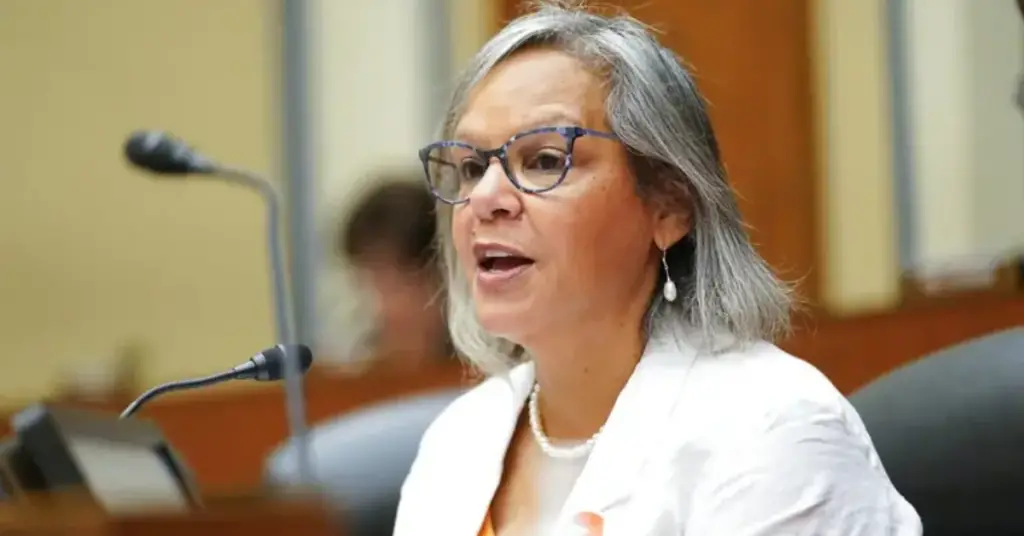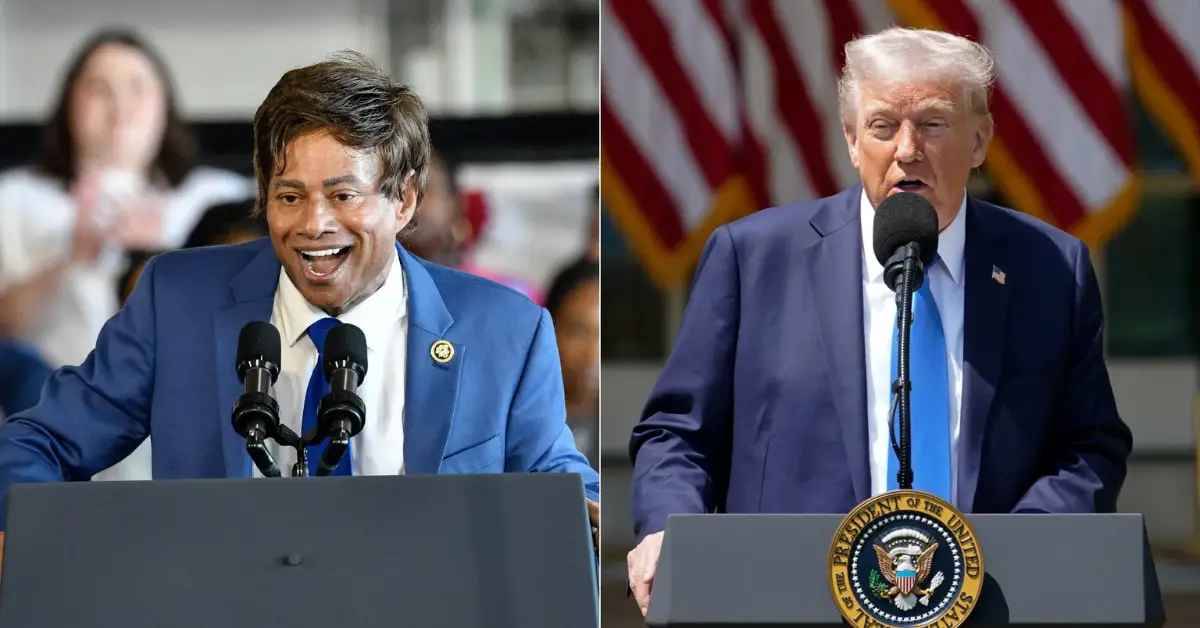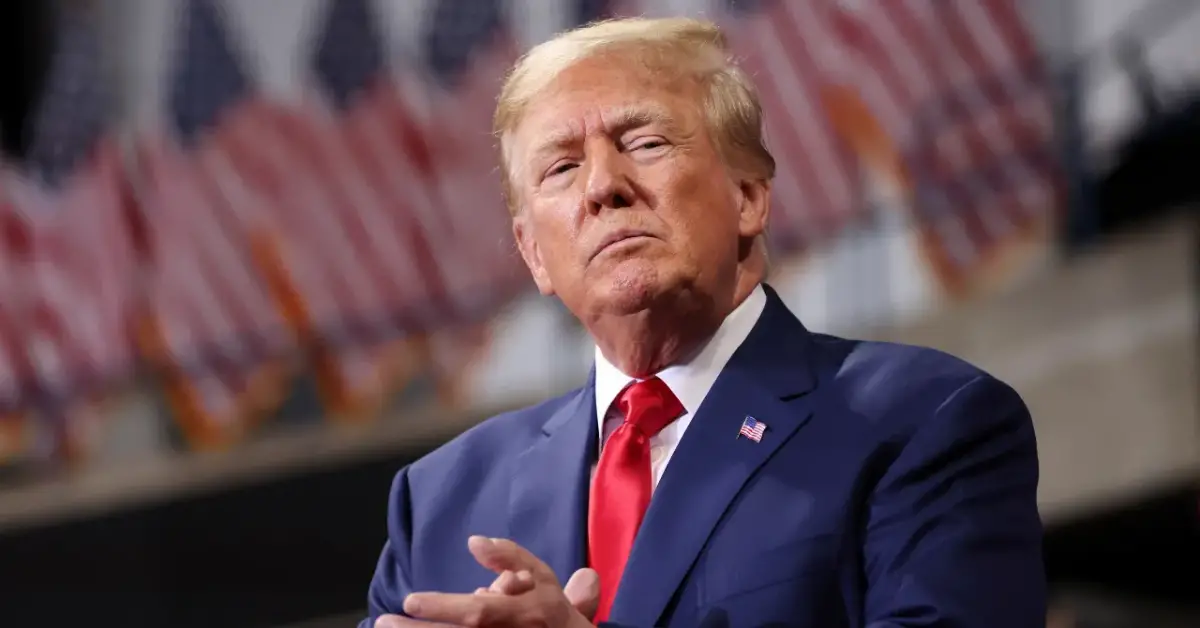In an unexpected twist to the ongoing political saga involving President Donald Trump, four Democratic lawmakers have withdrawn their support from a resolution aimed at impeaching him. This resolution, filed by Rep. Shri Thanedar (D-MI), accused Trump of abusing power, committing constitutional violations, and engaging in tyranny. However, by the end of the week, all four initial co-sponsors had reversed their positions, citing procedural issues and a lack of proper approval within the party.
The four Democrats—Reps. Robin Kelly (D-IL), Kweisi Mfume (D-MD), Jan Schakowsky (D-IL), and Jerry Nadler (D-NY)—had initially signed onto Thanedar’s impeachment resolution, which included seven articles of impeachment. These articles were introduced in response to what many Democrats believed were serious abuses of power by Trump during his second term. The charges included accusations of constitutional violations and misconduct that the lawmakers felt warranted formal action.
Then, on Monday, Thanedar introduced the impeachment resolution, but by Thursday, all four co-sponsors had backed away from the measure. The reason behind their withdrawals was that they were either added mistakenly or were unaware that the resolution had not been properly cleared by Democratic leadership. The issue underscores the importance of internal communication and thorough vetting of resolutions before they are introduced, particularly when they carry such significant political implications.
Rep. Kweisi Mfume’s office issued a statement explaining that the congressman had removed himself from the resolution after realizing it had not been cleared by Democratic leadership or fully vetted from a legal standpoint. Mfume’s spokesperson emphasised that Mfume preferred to err on the side of caution, opting to distance himself from a measure that had not gone through the proper channels of approval.
Similarly, Rep. Robin Kelly’s spokesperson indicated that the Illinois Democrat had removed her name after realizing that the resolution had not been drafted in consultation with the House Judiciary Committee. The Judiciary Committee typically plays a key role in considering articles of impeachment, and Kelly’s office pointed out that the resolution had not followed the usual process.
The other two co-sponsors, Reps. Schakowsky and Nadler did not immediately respond to requests for comments. Still, Nadler’s legislative director, Andrew Heineman, took the matter into his own hands by sending out an email to fellow Democratic aides on Thursday.
In this email, Heineman urged staffers to communicate with each other when their respective bosses sign on to bills or resolutions, as misunderstandings could easily occur. Heineman stated that “members can walk away with different impressions of a conversation,” and a quick check-in could avoid unnecessary confusion.
Thanedar’s resolution was the first formal impeachment attempt against President Trump during his second term. However, it was not the first time that the president faced impeachment proceedings. Trump was impeached twice during his first term, in 2019 and 2021, but he was acquitted by the Senate both times. Despite this, some Democrats, including Rep. Thanedar, felt that the president’s actions continued to merit further investigation.
However, Democratic leadership appears to be less enthusiastic about pursuing impeachment for a third time. House Democratic Caucus Chairman Pete Aguilar (D-CA) addressed the issue in a press briefing, expressing skepticism about the chances of success for any impeachment attempt.
Aguilar noted that while impeachment might be an appropriate tool in certain circumstances, he did not believe it would succeed in the current political climate. He pointed out that even though Trump had already been impeached twice, House and Senate Republicans were unlikely to act in a manner that would make impeachment effective.

Aguilar’s sentiments were echoed by several other Democrats who believe that Trump’s actions, particularly during the events surrounding the January 6 insurrection, merit impeachment. However, they acknowledge that the current political reality makes such a move highly unlikely.
Many argue that the lack of support from Republicans makes it impossible to successfully impeach Trump at this time. These Democrats cite the failure of Republicans to take action against Trump even in the face of the insurrection, when lawmakers feared for their lives and the Capitol building was overrun by rioters.
Rep. Becca Balint (D-VT) expressed frustration with the lack of action on the part of Republicans. “Republicans didn’t do anything when there was an insurrection, when people were fearing for their lives, and they wouldn’t vote to convict,” she said. “So, we’re supposed to believe we can get them on an impeachment vote now? No way.”
Balint also pointed out that very few Republicans, including Sen. Lisa Murkowski (R-AK) and Rep. Don Bacon (R-NE), have spoken out against Trump, despite having ample opportunities to do so. She believes that the lack of political will on the part of Republicans means that impeachment is not a viable option.
Despite the setback in the impeachment effort, Thanedar’s resolution has sparked a renewed discussion about accountability and the need for strong action against political figures who violate the public trust. While the withdrawal of the four co-sponsors has stalled immediate efforts, it has brought attention to the ongoing divisions within the Democratic Party over how best to address President Trump’s actions.
For many in the party, the question of impeachment remains a delicate one. Some argue that it is a necessary tool to hold Trump accountable, while others believe that the political consequences of pushing for impeachment would be too great. As the situation continues to unfold, Democrats will have to navigate these internal divisions and determine how best to proceed in the face of a deeply polarised political climate.
The withdrawal of support from four House Democrats over Trump’s impeachment resolution highlights the complex nature of the political and procedural challenges facing those who seek to hold the president accountable.
While the debate over impeachment continues, it is clear that both internal party dynamics and the political landscape at large will play a major role in shaping the future of such efforts. As the situation develops, it remains to be seen whether further actions will be taken to address the president’s conduct, or if the matter will fade into the background once again.
Disclaimer: This article has been meticulously fact-checked by our team to ensure accuracy and uphold transparency. We strive to deliver trustworthy and dependable content to our readers.




